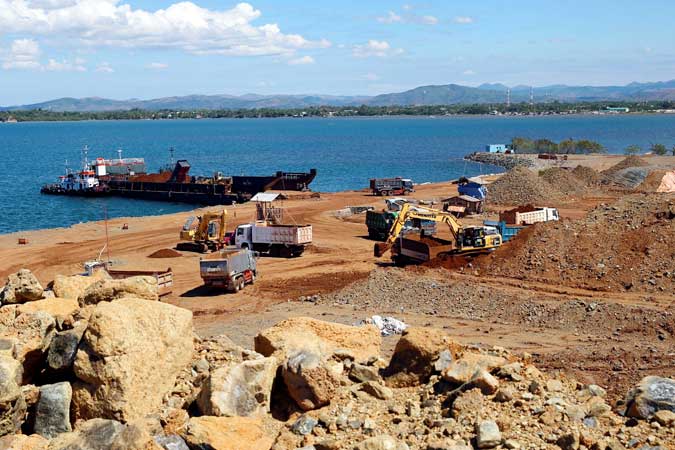
By Kyle Aristophere T. Atienza, Reporter
THE Philippines is expecting about $4 billion in capital investments from three major mining projects, after President Rodrigo R. Duterte lifted last week the nine-year moratorium on new mineral agreements.
If the projects of Sagittarius Mines, Inc., KingKing Mining Corp., and Silangan Mindanao Mining Co., Inc. “are any indication, we are looking at over $4 billion in capital expenditure,” Presidential Spokesperson Herminio “Harry” L. Roque, Jr. told BusinessWorld in a Viber message.
Mr. Duterte on April 14 signed Executive Order (EO) No. 130, which allows the government to enter into new mineral agreements and review existing mining deals for possible renegotiation.
Mr. Roque said new mining projects are also expected to generate P40 billion in local taxes and P20 billion worth of social development projects. Indigenous groups are also expected to benefit with around P15 billion in royalties expected to be collected from the major mining projects.
“These, however, will not come immediately, since this will be spread over the life of the mining project,” he said.
Mr. Roque said these mining projects would generate revenues to support the government’s key infrastructure programs as well as create more livelihood opportunities in the countryside.
Then-President Benigno S. Aquino III in 2012 prohibited the grant of new mining deals in several protected areas, while awaiting the passage of a law that would increase the government’s share in mining revenues.
Mr. Roque said the President lifted the moratorium as Republic Act No. 10963, or the Tax Reform for Acceleration and Inclusion Act, has already doubled the excise tax on minerals from 2% to 4%.
The Palace official said the new order was also made after the Department of Environment and Natural Resources (DENR) “put in place the necessary rules, regulations, and policies to ensure that mining in the country is safe for the people and the environment.”
Mr. Roque said the DENR, which has been criticized by the civil society for supposedly colluding with mining interests, already conducted a thorough review of the regulatory framework for mining.
In February 2017, Regina L. Lopez, who was Environment secretary at that time, ordered the closure of more than 20 metallic mines in the country over alleged violations of local environmental laws. Three months after, her appointment as DENR chief was rejected by the Commission on Appointments.
Mr. Roque last year said illegal mining and logging activities contributed to the massive flooding in Cagayan Valley in the Northern Philippines.
“As per the DENR, there are currently no legal large-scale mining operations happening in Isabela and Cagayan at present and the flooding that happened in those areas, the DENR added, may be attributed to other man-made causes like illegal logging,” Mr. Roque said.
Environmental groups earlier said the new order would only result in more environmental violations and enable mining firms to evade accountability.

